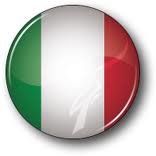
The u-turn
Up to 1987, waste matter treated by Petroldragon for the production of fuel oil was considered secondary material, i.e. either waste matter derived from the processing of raw materials, or material resulting from the recovery and recycling of waste; up to this time, all products derived from such matter had been exempt from waste disposal authorizations.
Without warning, and – even more unaccountably – retroactively, from a certain point in time onwards all secondary materials similar to those obtained and used by Petroldragon’s processes were declared to be toxic waste: as a consequence, all products derived therefrom were considered to be toxic waste as well. The acquisition, storage, and handling of such materials and products suddenly became subject to mandatory permits and government concessions. Petroldragon did not hold any permits or licenses for waste treatment, simply because such permits had never been required. Its operations, which had hitherto been perfectly legal, suddenly became, in the eyes of the Italian Government, an illegal and unauthorized activity. In a very short time, all of Petroldragon’s equipment was seized, while the storage tanks which had always contained the raw material became – by legislative decree – illegal dumping grounds for toxic waste.
From this moment on, and for many years to follow, Andrea Rossi was subject to innumerable arrests and prosecutions.
It is interesting to note that, from the very start of Petroldragon’s activities, all products brought in as raw material and all purchases of final products manufactured by the Petroldragon and Omar plants, had been constantly subject to rigorous controls on the part of the Guardia di Finanza [Financial Police], as liable to excise. This means that all incoming and outgoing loads of products had been steadily and continuously sampled and analyzed by the Ministry of Finance.
While operating, Petroldragon-Omar paid the Italian Government more than 2 billion Lire in excise alone, because its production was always considered as fuel, subject to a specific production tax.
It is paradoxical, to say the least, that for years the Italian Government first collected billions of Lire from Rossi’s companies in fuel tax (thereby implicitly confirming that their products were fully recognized as fuel), but subsequently enacted retroactive legislation stating that the same formerly legal operations were in fact completely illegal. The Government thus declared void and illicit the very same typology of production it had collected a considerable amount of tax from.
In this way, the Italian Government would appear to have been accomplice in a conspiracy, the modus operandi of which it had been aware of from the very first, and had actually regulated and controlled.
